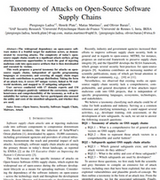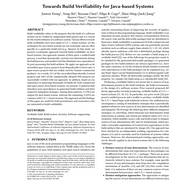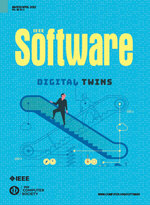
Before you go on: I've been
warned off
implementing this in practice on a few counts; namely, the space tradeoff isn't
worth it, and it's unlikely to correct meaningful errors. I'm going to leave
this post up, but please do take the content with a very large grain of salt!
My initial efforts to build a
PHY
and
Data Link layer from
scratch using my own code have been progressing nicely since the initial
BPSK based protocol I ve documented under the PACKRAT series. As part of that,
I ve been diving deep into
FEC,
and in particular,
LDPC.
I won t be able to do an overview of LDPC justice in this post with any
luck that ll come in a later post to come as part of the RATPACK series,
so some knowledge is assumed. As such this post is less useful for those
looking to learn about LDPC, and a bit more targeted to those who enjoy
talking and thinking about FEC.
Hey, heads up! - This post contains extremely unvalidated and back of
the napkin quality work without any effort to prove this out generally.
Hopefully this work can be of help to others, but please double check anything
below if you need it for your own work!
While implementing LDPC, I ve gotten an encoder and checker working, enough
to use LDPC like a checksum. The next big step is to write a Decoder, which
can do error correction. The two popular approaches for the actual correction
that I ve seen while reading about LDPC are
Belief Propagation,
and some class of linear programming that I haven t dug into yet.
I m not thrilled at how expensive this all is in software, so while implementing
the stack I ve been exploring every shady side ally to try and learn more about
how encoders and decoders work, both in theory - and in practice.
Processing an LDPC Message
Checking if a message is correct is fairly straightforward with LDPC (as with
encoding, I ll note). As a quick refresher given the LDPC H (check) matrix
of width N, you can check your message vector (msg) of length N by
multipling H and msg, and checking if the output vector is all zero.
// scheme contains our G (generator) and
// H (check) matrices.
scheme := G: Matrix ... , H: Matrix ...
// msg contains our LDPC message (data and
// check bits).
msg := Vector ...
// N is also the length of the encoded
// msg vector after check bits have been
// added.
N := scheme.G.Width
// Now, let's generate our 'check' vector.
ch := Multiply(scheme.H, msg)
// if the ch vector is all zeros, we know
// that the message is valid, and we don't
// need to do anything.
if ch.IsZero()
// handle the case where the message
// is fine as-is.
return ...
// Expensive decode here
g (generator) matrix out, building a bipartite graph, and
iteratively reprocessing the bit values, until constraints are satisfied and
the message has been corrected.
This got me thinking - what is the output vector when it s not all zeros?
Since 1 values in the output vector indicates consistency problems in the
message bits as they relate to the check bits, I wondered if this could be used
to speed up my LDPC decoder. It appears to work, so this post is half an attempt
to document this technique before I put it in my hot path, and half a plea for
those who do like to talk about FEC to tell me what name this technique
actually is.
k-Bit Brute Forcing
Given that the output Vector s non-zero bit pattern is set due to the position
of errors in the message vector, let s use that fact to build up a table
of k-Bit errors that we can index into.
// for clarity's sake, the Vector
// type is being used as the lookup
// key here, even though it may
// need to be a hash or string in
// some cases.
idx := map[Vector]int
for i := 0; i < N; i++
// Create a vector of length N
v := Vector
v.FlipBit(i)
// Now, let's use the generator matrix to encode
// the data with checksums, and then use the
// check matrix on the message to figure out what
// bit pattern results
ev := Multiply(scheme.H, Multiply(v, scheme.G))
idx[ev] = i
idx mapping, we can now
go back to the hot path on Checking the incoming message data:
// if the ch vector is all zeros, we know
// that the message is valid, and we don't
// need to do anything.
if ch.IsZero()
// handle the case where the message
// is fine as-is.
return ...
errIdx, ok := idx[ch]
if ok
msg.FlipBit(errIdx)
// Verify the LDPC message using
// H again here.
return ...
// Expensive decode here
Does this work?
Frankly I have no idea. I ve written a small program and brute forced
single-bit errors in all bit positions using random data to start with, and
I ve not been able to find any collisions in the 1-bit error set, using the
LDPC matrix from 802.3an-2006. Even if I was to find a collision for a
higher-order k-Bit value, I m tempted to continue with this approach, and treat
each set of bits in the Vector s bin (like a hash-table), checking the LDPC
validity after each bit set in the bin. As long as the collision rate is small
enough, it should be possible to correct k-Bits of error faster than the more
expensive Belief Propagation approach. That being said, I m not entirely
convinced collisions will be very common, but it ll take a bit more time
working through the math to say that with any confidence.
Have you seen this approach called something official in publications? See
an obvious flaw in the system? Send me a tip, please!
 Desde de setembro de 2015, o
time de publicidade
do Projeto Debian passou a publicar a cada dois meses
listas com os nomes dos(as) novos(as)
Desenvolvedores(as) Debian (DD - do
ingl s Debian Developer) e
Mantenedores(as) Debian
(DM - do ingl s Debian Maintainer).
Estamos aproveitando estas listas para publicar abaixo os nomes dos(as)
brasileiros(as) que se tornaram Desenvolvedores(as) e Mantenedores(as) Debian a
partir de julho de 2015.
Desenvolvedores(as) Debian / Debian Developers / DDs:
Marcos Talau
Desde de setembro de 2015, o
time de publicidade
do Projeto Debian passou a publicar a cada dois meses
listas com os nomes dos(as) novos(as)
Desenvolvedores(as) Debian (DD - do
ingl s Debian Developer) e
Mantenedores(as) Debian
(DM - do ingl s Debian Maintainer).
Estamos aproveitando estas listas para publicar abaixo os nomes dos(as)
brasileiros(as) que se tornaram Desenvolvedores(as) e Mantenedores(as) Debian a
partir de julho de 2015.
Desenvolvedores(as) Debian / Debian Developers / DDs:
Marcos Talau

 A new minor release 0.2.2 of our
A new minor release 0.2.2 of our 
 . The system talks about a back key but what back key I have no clue.
. The system talks about a back key but what back key I have no clue.







 The following contributors got their Debian Developer accounts in the last two months:
The following contributors got their Debian Developer accounts in the last two months:

























